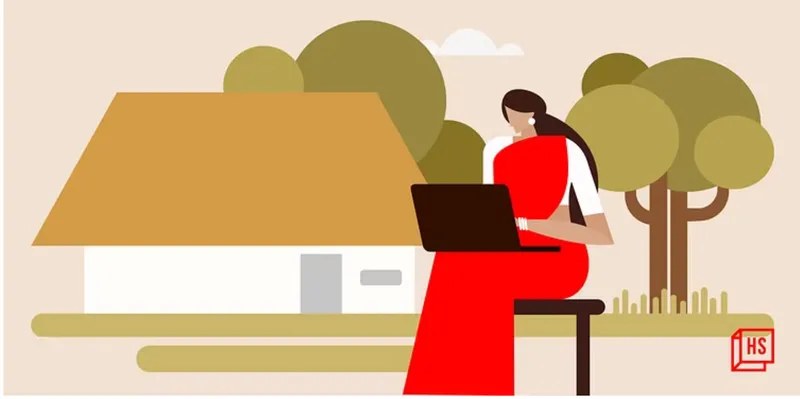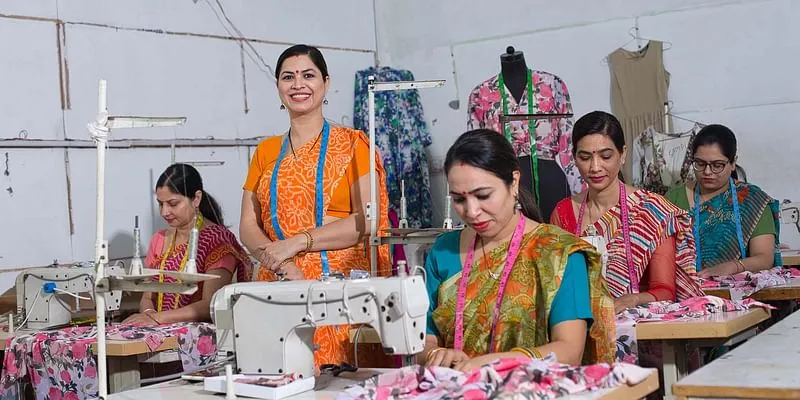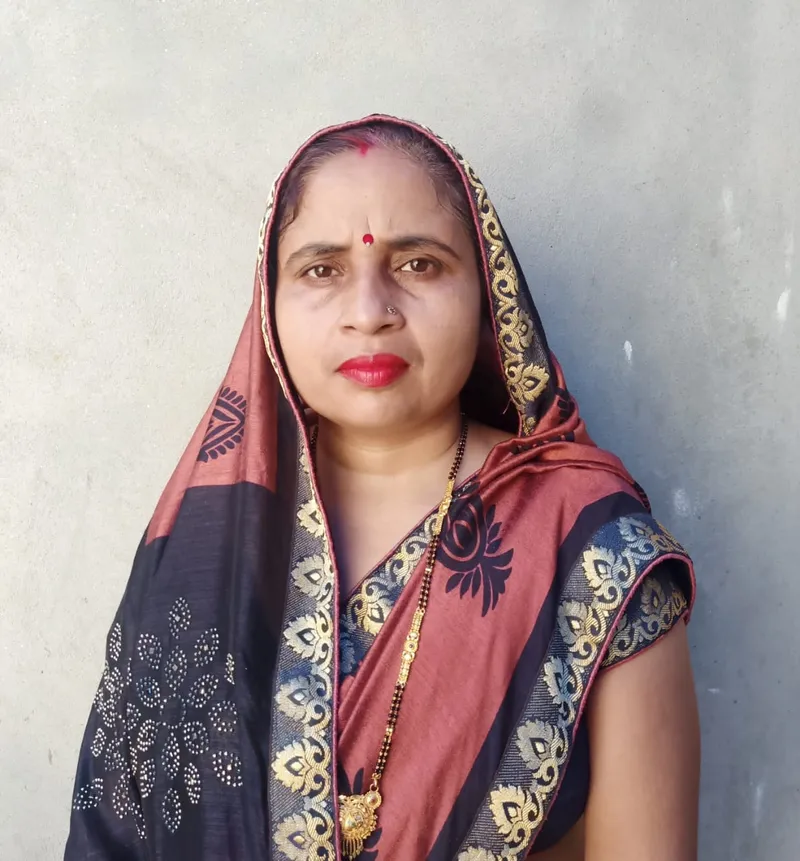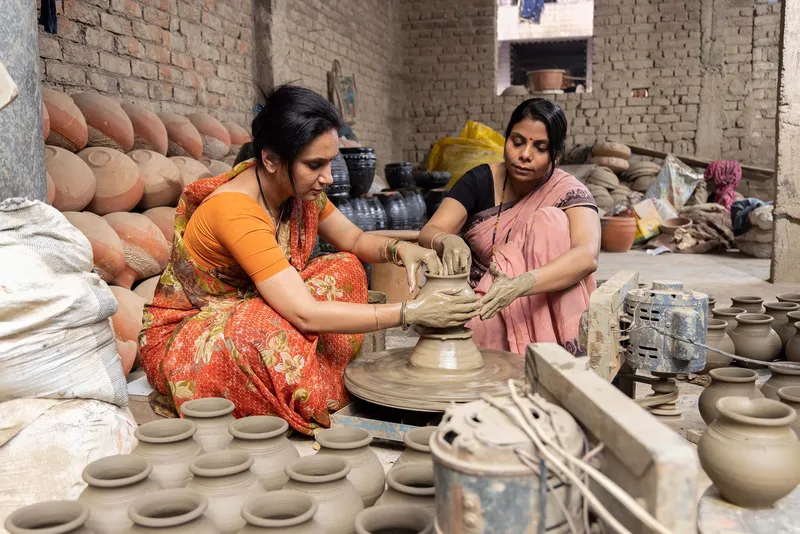How women-led startups can benefit from government and agency support to grow and scale
On National Startup Day, HerStory takes a deep dive into the role played by government agencies and incubators/accelerators in fostering women’s entrepreneurship and bridging the urban-rural divide.
At YourStory’s flagship event TechSparks 2022 held in November last year, Finance Minister Nirmala Sitharaman was emphatic that, if there was any country that could solve the gender imbalance in the startup ecosystem, which seemed to be a problem around the world, it had to be India.
“There should be more women in the room,” she told the audience. In fact, while presenting the Union Budget 2022, the finance minister had remarked, “Naari Shakti is the harbinger of our bright future.”
In September 2022, Prime Minister Narendra Modi, while addressing a conference of self-help groups (SHGs) in Karahal, Madhya Pradesh, said that out of the Rs 19 lakh crore loans provided to small businesses in the country, 70% have been received by women entrepreneurs.
In this scenario, it becomes imperative to understand the role played by the central government, state governments, and other agencies in fostering women’s entrepreneurship.

Women entrepreneurs can take advantage of government schemes to start up and scale
Fostering women’s entrepreneurship
In January 2016, the Startup India initiative introduced several programmes with the objective of supporting entrepreneurs and building a robust startup ecosystem. These programmes are managed by a dedicated team that reports to the Department for Industrial Policy and Promotion (DPIIT).
In 2018, NITI Aayog launched the Women Entrepreneurship Platform (WEP), a unified access portal to bring together women from different parts of India and create an ecosystem to nurture their entrepreneurial aspirations. As an aggregator platform, WEP forges key partnerships to bring content, workshops, campaigns, and avenues of learning and growth to its users.
In a conversation with HerStory, Anna Roy, Senior Advisor, NITI Aayog, and Mission Director of Women Entrepreneurship Programme (WEP), said, “The vision and mission remain to be an aggregator platform to overcome information asymmetry, provide information seamlessly to the targeted beneficiary at the right time and in a manner that it is easily consumable, and enable easy discovery of this information and reach the last mile through a pan-India approach.”
In December 2019, PM Modi, in his monthly radio show Mann ki Baat, highlighted the efforts of women entrepreneurs from Phulpur and Kadipur in Allahabad, Uttar Pradesh. These women sought the help of a women’s self-help group to make slippers, handicrafts, and candles. This initiative helped them to rise above poverty and earn a livelihood.
With the help of the Gramin Ajivika Mission, a scheme under the National Rural Livelihood Mission implemented by the Ministry of Rural Development, a slipper manufacturing unit was then set up to help the women.
Apart from this, a number of schemes specific to women entrepreneurs have been introduced by the central government. These include:
Bharatiya Mahila Bank: A commercial loan scheme for businesswomen who want to start a new business in real estate or a small and medium enterprise (SME) in retail. Female entrepreneurs are given a highest loan amount of up to Rs 20 crore and a discount of 0.25% on a normal 10.15% or more interest rate.
The Credit Guarantee Fund Trust for Micro and Small Enterprises (CGTMSE): It allows collateral-free credit available to the micro and small enterprise sector, where there is no requirement for collateral security for a loan of up to Rs 1 crore. Women-led manufacturing enterprises can avail credits of up to Rs 20 crore.
The Dena Shakti Scheme: It provides financial support to female entrepreneurs, where a loan amount of up to Rs 20 lakh can be availed for horticulture, retail exchange, education, and housing. An additional micro-credit of up to Rs 50,000 can also be availed under micro-credit schemes. This also has a 0.25% discount for women entrepreneurs who are majority stakeholders in the company.
Udyogini Scheme: Launched under the Women Development Corporation, it encourages poor women entrepreneurs to receive financial support to start a business. It provides women between the ages of 18 and 45 and whose annual family income is Rs 45,000 or less to avail loan of up to Rs 1 lakh. Furthermore, women from the SC/ST category will get an allowance of 30% of the advance sum or Rs 10,000, whichever is lower. However, women from the general category can get an allowance of Rs 7,500 or 20% of the credit sum, whichever is lower.
This scheme was said to have been initially started by Karnataka State Women Development Corporation, and many banks have carried out this scheme under various variations.
Mahila Udyam Nidhi Scheme: Through the Small Industrial Development Bank of India (SIDBI), it engages women entrepreneurs and gives them the cash flow to maintain their businesses. The cash provided under this plan can be used in the service, manufacturing and production areas, and can get a credit of up to Rs 10,00,000 for starting a small business.
Stree Shakti Scheme: An initiative by the State Bank of India (SBI) for women entrepreneurs, it helps women entrepreneurs who own and manage retail trade and business enterprises of professional and self-employed people like doctors, beauty parlour operators, etc.
An enterprise with a majority share, women who own more than 50% can get a credit up to Rs 20 lakh. A concession of 0.50% on the interest cost is given by the bank on credits of more than Rs 2 lakh. Security is not mandatory for credits of up to Rs 5 lakh.

Representative image
States follow suit
The state governments are not far behind in their efforts to help women to start up and contribute to Bharat.
The Kerala Startup Mission (KSUM) offers a Soft Loan Scheme. Under this, DPIIT-approved startups with unique IDs issued by KSUM can avail seed fund of up to Rs 15 lakh. The woman co-founder should have a majority stake in the startup and it should be registered in Kerala. The startup directors should also have a good CIBIL score, preferably more than 750.
The scheme also provides technology commercialisation support of up to Rs 15 lakh for DPIIT-approved startups.
As part of its Women Startup Summit, it organises the Indian chapter of the ‘She Loves Tech’ global pitch competition for women-led startups every year. In September 2022, it announced grants worth Rs 1.08 crore to nine women-led startups.
Tamil Nadu has launched in 2022 an initiative called Thozhilanangu, which is a special package for women-led startups. To avail this benefit, these startups should have women who own 75% equity in the company.
Women entrepreneurs get an assistance of Rs 15 lakh from TANSEED, a seed fund support scheme under StartupTN. TANSEED has 25% reservation for women-led startups. The startups are also eligible for matching grants under Vaazhndhu Kaattuvom project and a focused angel investor circle under Tamil Angels programme of StartupTN.
They also get exclusive co-working spaces in state-supported incubation centres and state universities for free-of-cost for the first year, subject to a subsidy of Rs 2 lakh.
Sivarajah Ramanathan, Mission Director and CEO of StartupTN, says, they are working to identify women-led startups. The programme provides help on all fronts, including to apply for DPIIT. He says more schemes for women-led entrepreneurs are on the anvil.
Karnataka Innovation and Technology Society (KITS), in association with the Karnataka State Women Development corporation (KSWDC), launched the “Vriddhi” scheme in the state budget of FY 2022-23. Under this scheme, KSDWC will be providing loan assistance between Rs 5 and 10 lakh at 4% interest rate to be repaid in 60 installments.
To avail this facility, at least one director or partner of the company should be a female entrepreneur with substantial shares in the company.
Previously mentioned Udyogini Scheme has been part of the women-focused Government of Karnataka schemes since 1997-98 and Stree Sakthi.
The North East Women Entrepreneur Networks has been creating awareness and an active ecosystem for women entrepreneurship in the states of Manipur and Nagaland.
In Uttar Pradesh, the Women Entrepreneurship Scheme 2014-2015 aims to bring up the micro-level and individual traditional industries and handicraft units to form a special purpose vehicle (SPV). Under the scheme, a cluster of 25 or more units are eligible to avail the benefits.
Success stories—forging ahead

Manju Kumari
In November 2021, HerStory highlighted the stories of Manju Devi from Dhakoli village, Bulandshahr district, and Babi Kumari from Buddha Khera village, Saharanpur in Uttar Pradesh.
Manu runs Kumar Creations on Flipkart and sells roti flap covers, costumes for deities like Krishna and Mata Rani, and plans to add salwar suits, tops, and palazzos soon.
Babi Kumari sells handbags, purses and wallets, wedding kits, duffel bags, and school bags. Both these small entrepreneurs have benefited from Her&Now’s Entrepreneurship Support Programme in Uttar Pradesh, implemented by Deutsche Gesellschaft für Internationale Zusammenarbeit (GIZ) on behalf of the German Federal Ministry for Economic Cooperation and Development, in partnership with the Ministry of Skill Development and Entrepreneurship (MSDE), Government of India.
Both women received small loans to start their businesses and were also provided with the required mentorship and training.
Women entrepreneurs like Arulmozhi Saravanan, who began selling office supplies on the government e-marketplace (GeM), sought a Mudra Yojana loan of Rs 50,000 to expand her business. Her success story has also been quoted by PM Modi many times.
Drivers for growth
The role of incubators and accelerators cannot be discounted when it comes to providing all-round support to women entrepreneurs beyond funding. They often work hand-in-hand with government agencies to augment the effort.
Abhishek Pareek, CEO, AIC Banathali Vidyapith, says, “Under the Startup India Seed Fund at AIC Banasthali, a good number of women-led startups have received seed funding of up to Rs 50 lakh. Similarly, under the DST supported NIDHI PRAYAS Centre, women startups get grants of up to Rs 10 lakh for deeptech prototype development.”
However, he points out that the current support infrastructure is unorganised and scattered. “There are many incubators who do one-off programmes for women startups. We need dedicated centres focused on supporting a large number of women-led startups. The various state missions also need a focused approach.”
“There are several programmes and schemes available to women entrepreneurs, both from the government and private actors like NSRCEL. They typically provide one or more of the following–nurture an entrepreneurial mindset, provide access to funding, create networking opportunities, and connect with mentors and role models. They can give women the confidence, the means, and the support system, to undertake the entrepreneurial journey,” says Professor Srivardhini Jha, Chairperson of NSRCEL at IIM Bangalore.
WE Hub, from Telangana, the first state-led incubator to foster and promote women’s entrepreneurship, has over the last five years facilitated financial linkages to the tune of Rs 85.21 crore for its entrepreneurs, of which almost 80% has been through government schemes such as PMEGP, CGTSME, and Start Up India schemes.
“Additionally, we are also enabling entrepreneurs to get reimbursement for the exhibition costs incurred under the MSME scheme for Marketing Assistance. In this quarter, we are also looking at operationalising the scheme for reimbursement of expenses incurred towards barcode procurement, so that it will benefit the FMCG entrepreneurs in our network,” says Deepthi Ravula, CEO, WE Hub.

After three months of handholding support to the Dalit women under the Dalit Bandhu scheme, WE Hub enabled 343 women to establish their enterprises in the Huzurabad region of the Karimnagar District of the state.
Neereti Mounika, a beneficiary under the Telangana Dalit Bandhu Scheme, attended the orientation session conducted by WE Hub in Huzurabad and shared her difficulty in availing of the funds under the scheme. She wanted to start her own business for eight years. With the help of WE Hub, she set up Mounika Computer Embroidery and Stationery Shop, and went on from earning Rs 4,000 per month as a tutor to earning Rs 10,000 per month within two months of starting the business.
Velpula Sharada, a beneficiary, and her family were keen on setting up a saree centre or a kirana store. After the one-on-one session with WE Hub, they realised the benefits of setting up a manufacturing unit. Her previous monthly household income was Rs 25,000. After setting up the unit, her income almost doubled to Rs 45,000–50,000 a month. The intervention has boosted their social capital too.
However, there needs to be more awareness on government schemes, especially for women from smaller towns and cities.
Deepthi agrees. “Several women entrepreneurs are unaware of government schemes, and those who are aware lack clarity on specific features of the schemes. To better assess women's repayment capacity, differentiated creditworthiness assessment mechanisms should be adopted, and awareness campaigns for existing schemes for women entrepreneurs should also be taken into consideration.”
Sridevi Devi Reddy, Founding Chief Executive Officer, SR Innovation Exchange, the technology-business incubator of SR University, Warangal, and VP, Startup Ecosystem, Xelpmoc Design & Tech Limited, rightly points out, “We need more outreach in vernacular languages for awareness on schemes/programmes for women entrepreneurs in public places like national banks, micro finance centres, gram panchayat offices, etc. Also, the programmes and initiatives need to focus on skilling/ upskilling, leading to setting up of small businesses.”
Tejashree Shah, Lead Stakeholder Engagement, iCreate says, "There is not just lack of awareness about existing government schemes but also lack of understanding and handholding how to qualify and apply for the same. Small towns and villages see a lot of grass root innovation led by women entrepreneurs which doesn't necessarily have tech. Getting connected to the right network via mentors, availing government schemes and market access is where the focus is needed."
Edited by Megha Reddy









